The Problem of Hunger
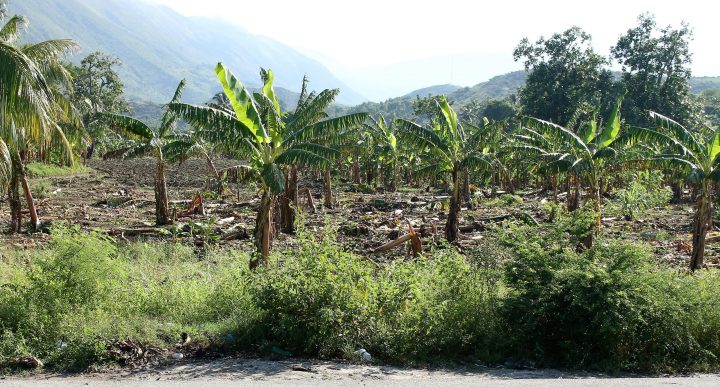
One of the many banana orchards damaged by Hurricane Matthew.
Two of our board members have been in Terre Blanche this week and have seen first-hand the damage caused by Hurricane Matthew.
We are happy to report that everyone is safe and homes appear to be intact. The dirt road between Gonaives and Terre Blanche took a beating with the rain and is in bad shape, making travel more difficult.
The biggest challenge now is accessibility of food. For the past two years, this region, and much of Haiti, has struggled with drought, meaning many planted gardens never made it to harvest because of the dry conditions.
In this area of Haiti, many individuals and families depend on gardens or small fields for personal food, animal feed, or to sell produce at market. This makes the loss of crops devastating, especially when the loss repeats itself as it has in recent years.
Hurricane Matthew compounded the problem when the rain and wind destroyed crops yet again. Very few people have any food stored so acquiring meals is a daily struggle. We expect that food prices will increase in the coming months and hunger will be a chronic problem for a long time to come.
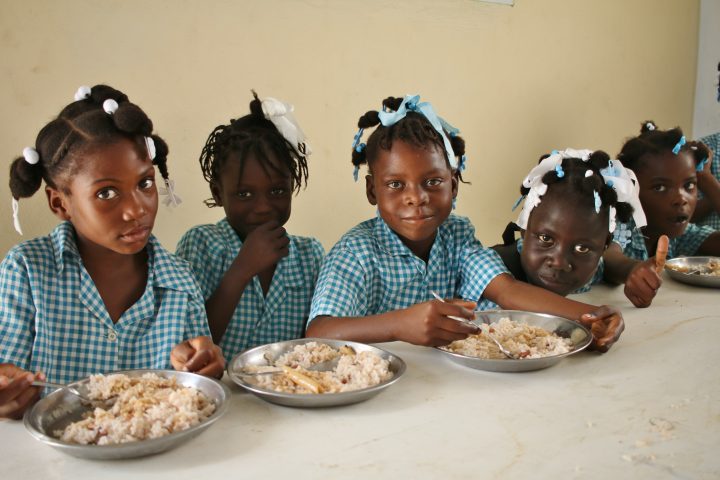
Students eating lunch at the school in Terre Blanche.
DONATE NOW TO HELP FIGHT HUNGER
In the midst of this difficult time, we are encouraged by the community health volunteers who continue to help their neighbors and are making plans for anticipated health concerns. We are also thankful for Pastor Delamy, his wife Elvire, and the many others who are working tirelessly to help these communities.
Please consider making a difference by donating to Haiti Foundation of Hope. Your gift will go directly to helping the people of Haiti. Because of your financial assistance, children receive a healthy school lunch each day, beans and rice are distributed to those most in need, and people are supported and encouraged through many other programs.
Thank you for all your help.







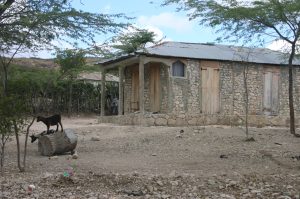
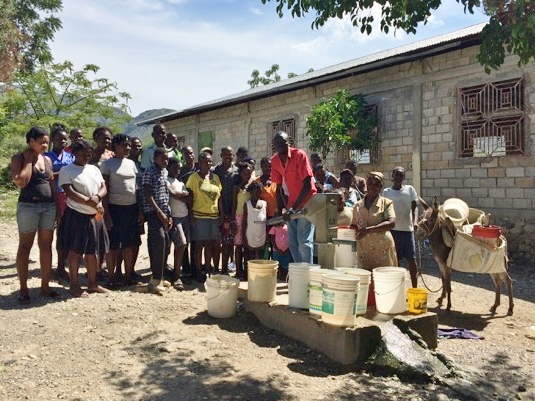
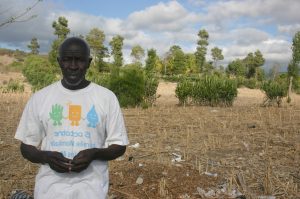
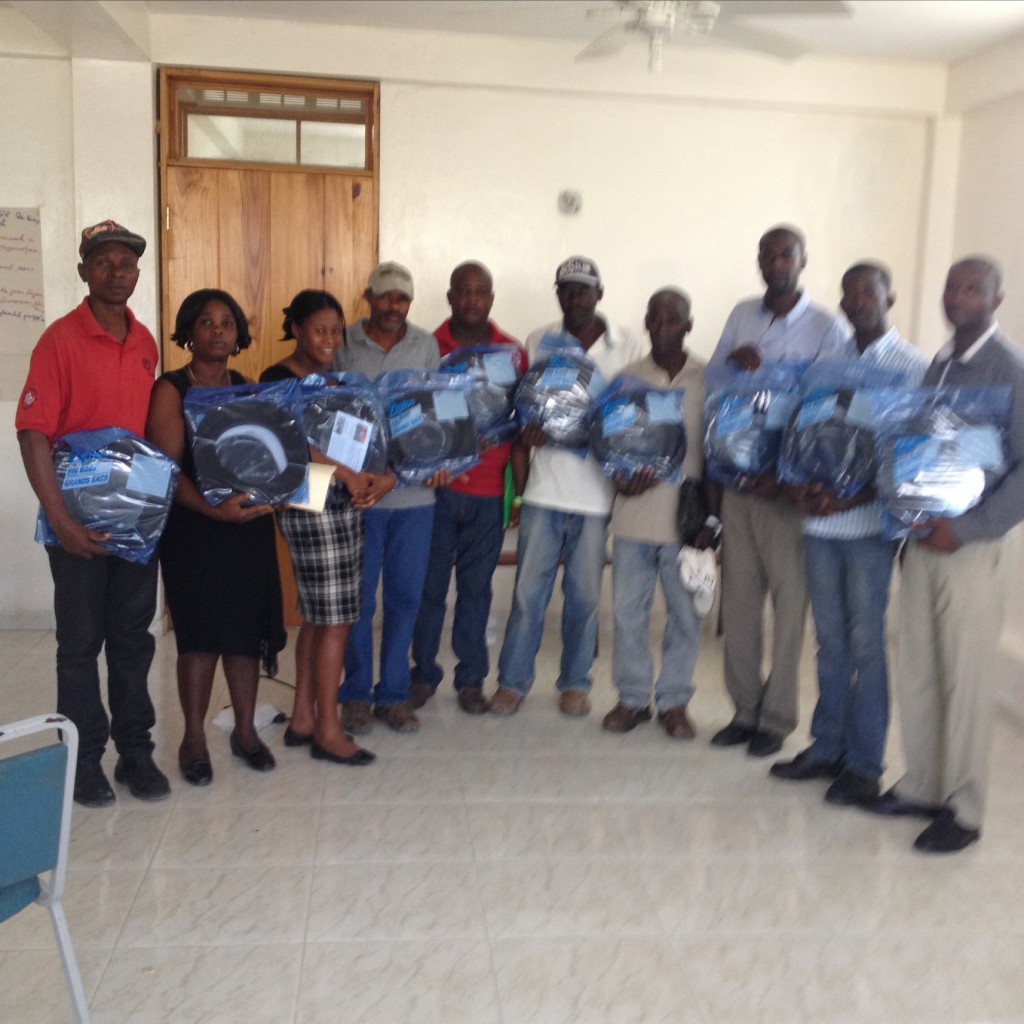

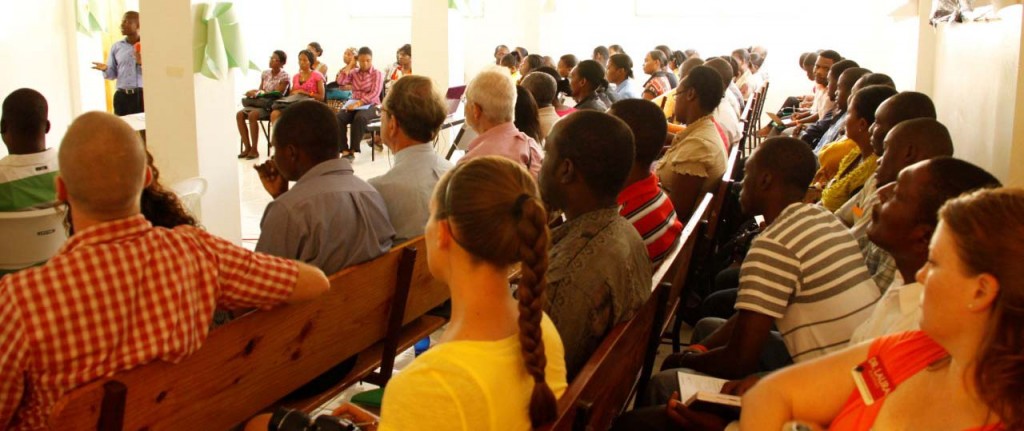
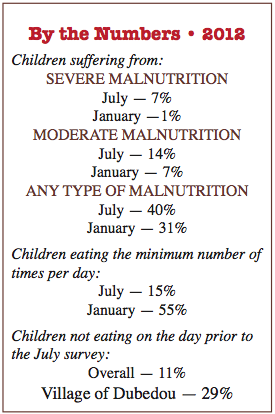
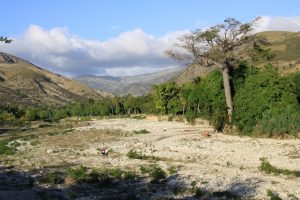
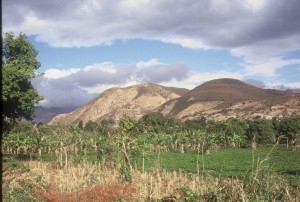

 Instagram Feed
Instagram Feed
